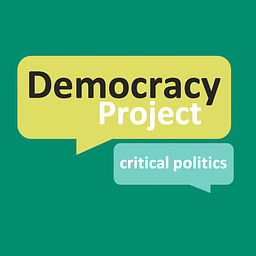Table of Contents
Republished with Permission
Author: Chris Trotter

CHLOE SWARBRICK has embarked on a brave, but almost certainly doomed, political experiment. She has set out to build a mass movement on the foundations of a political party that rejects majoritarian decision-making and which, by elevating the particular above the universal, makes the social solidarity that fuels mass action impossibly difficult to achieve. If the transformational movement Swarbrick is hoping to build is ever to eventuate, then she will have to fundamentally remake her party.
Perhaps the best way to illustrate the difficulty of the task Swarbrick has set herself is to reverse-engineer the salutary fate of the Auckland chapter of School Strike 4 Climate. This was the organisation, composed mainly of conscientized middle-class secondary-school students, widely credited with mobilising upwards of 50,000 young Aucklanders for the struggle against global warming back in 2015.
Central to the success of School Strike 4 Climate was its correct assumption that mass support for their cause already existed among those aged 15–20 years, and that to mobilise that support all they needed to do was organise a time and place for them to demonstrate it. The leadership of School Strike 4 Climate was largely self-selected, but the organs of organisation they conjured into existence were open to all. The kids who produced one of the largest political demonstrations in Auckland’s history did not ask permission before proceeding. Instead, they took the advice of the Nike Corporation and Greta Thunberg – and just did it.
And what a price they paid for having the temerity to organise a successful political event without first proving themselves fit “allies” for the victims of white supremacy, colonial subordination and heteronormative oppression. In the months and years that followed School Strike 4 Climate’s 2015 success, its organisers and participants were systematically ‘re-educated’ to the point where their casual exercise of white privilege ‘persuaded’ them to disband their organisation and withdraw into silence. In a statement released in June 2021, Auckland School Strike 4 Climate, declared itself to be “a racist organisation”. Henceforth, the fight against global warming would be led by their systemically victimised comrades.
But, if School Strike 4 Climate’s fate was to start huge and be made small, Swarbrick’s problem is how to take an organisation whose political mechanisms are designed to keep it small, and make it huge.
The Greens insistence on consensus-based decision making, or, failing that, requiring the support of 75 per cent of those responsible for making decisions, is driven by a profoundly elitist approach to politics. Those who framed the constitutional arrangements of the Green Party of Aotearoa were mistrustful of majorities and the political behaviour best suited to generating them. They did not want demagogues, they wanted philosopher kings and queens – men and women whose demonstrable wisdom counted for more than their ability to sway a conference of delegates. Investing these wise elders, and their tight circle of supporters, with veto powers was considered preferable to allowing 51 per cent of Greens to overrule the preferences of the remaining 49 per cent.
The problem with this constitutional structure is that it not only empowers those gathered around the revered philosopher king and/or queen, but also every other minority with the political smarts to throw a spanner in the decision-making works until its own agenda items are ticked-off. Constitutionally and politically, the Greens could hardly be better suited to advancing the cause of “Identity Politics” which, almost by definition, is hostile to the claims of dominant majorities. So much so that any Green politician demonstrating an ability to enthuse, galvanise, and (most alarmingly) mobilise large numbers of people is bound to attract the suspicion, even the outright enmity, of those whose interests would be compromised by an influx of members advancing policies believed to represent the greatest good for the greatest number.
This article was originally published by the Democracy Project.









